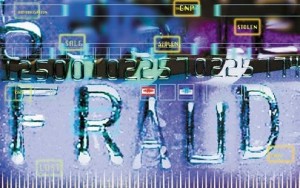“Safe is not a privilege. It is a right. Safe never sleeps.”
This is the message that McAfee delivers on their home page. They claim to provide comprehensive anti-theft protection. So what is theft? What kind of price do we expect and are asked to endure in order to get “protection”? Let’s look at the details which we at CompuClever experienced first-hand.

McAfee
- Prior to Sept. 17 2012: We were contacted by McAfee Web Security team about renewing our web security monitoring service for the next two years. We had been using this service for the past four years, but given there are comparable services with better pricing plans, we decided not to renew. The expired American Express credit card information was stored on our McAfee account. The card expired in May 2012 and we decided to not update the card record, thinking that no one could do anything using a credit card with invalid expire date.
- Oct. 22, 2012: We discovered a transaction of $3,910.44 was charged by McAfee on Sept. 17th 2012, for a two-year web security monitoring service that we didn’t want to renew. No bill, invoice, or notification of any sort was sent by McAfee. After reviewing our account information, we also discovered that McAfee had altered the credit card expiry date by adding one year to it. We immediately contacted our McAfee Account Manager by email and asked him to reverse the charge.
- Nov. 8, 2012: We did not receive any reply from McAfee. We called our account manager, who transferred us to the Renewals Account Manager. She replied that we should have provided a written notice to cancel our renewal and since we are beyond the 30 day period she would not reverse the process. She also stated that we have to play according to the “terms” and there was nothing at all she could do.
- Nov. 8, 2012: We filed a complaint with the McAfee Ethics Point group, which is McAfee’s corporate business ethics governance department, and McAfee’s PR department.
- Nov. 9, 2012: Someone from the McAfee Security team called us and offered us a partial refund. We refused.
- Nov 13, 2012: McAfee Ethics Point sent an email saying that they are looking into the case. This is the last piece of communication we received from McAfee.
American Express (AMEX)
- Oct 22, 2012: We contacted AMEX to report the case. At the beginning the AMEX agent tried to brush us off after she learned that we had had a previous relationship with McAfee. Then we pushed the fact that McAfee had forged our credit card expiry date and AMEX actually let this illegal charge go through. AMEX then agreed to establish an investigation to look into the matter.
- Nov 2, 2012: AMEX notified us that the charge was temporarily suspended while they were investigating the incident.
- Nov 21, 2012: AMEX informed us about the result of the investigation – they revoked the illegal charge and credited our account. More specifically, AMEX stated that “the merchant (McAfee) has not provided us with information required to resolve this matter”.
In this cyber age when a good portion of us purchase products and services online by providing and entrusting our credit card information to vendors like Amazon and eBay, this awakening experience provoked us to think twice about “Who Can You Trust“. As individual PC users who interact with the online world through our computers, we need to practice caution before storing credit card information with a vendor, even if that’s with McAfee, a supposedly trustworthy business entity.
This experience has hit close to home for us at CompuClever as both product users and product suppliers. As a product vendor and service provider, we see the need to scrutinize our practices to insure our business ethics are upheld and adhered to while at the same time we are driven to create revenue and profit for our stakeholders. Correspondence and communication with our users enables a two-way relation which stands in stark contrast to dealing with clientele as faceless entities within a system; clientele that are required to play according to a one-sided set of terms. We hope this article has been of use to you and we encourage your feedback.
